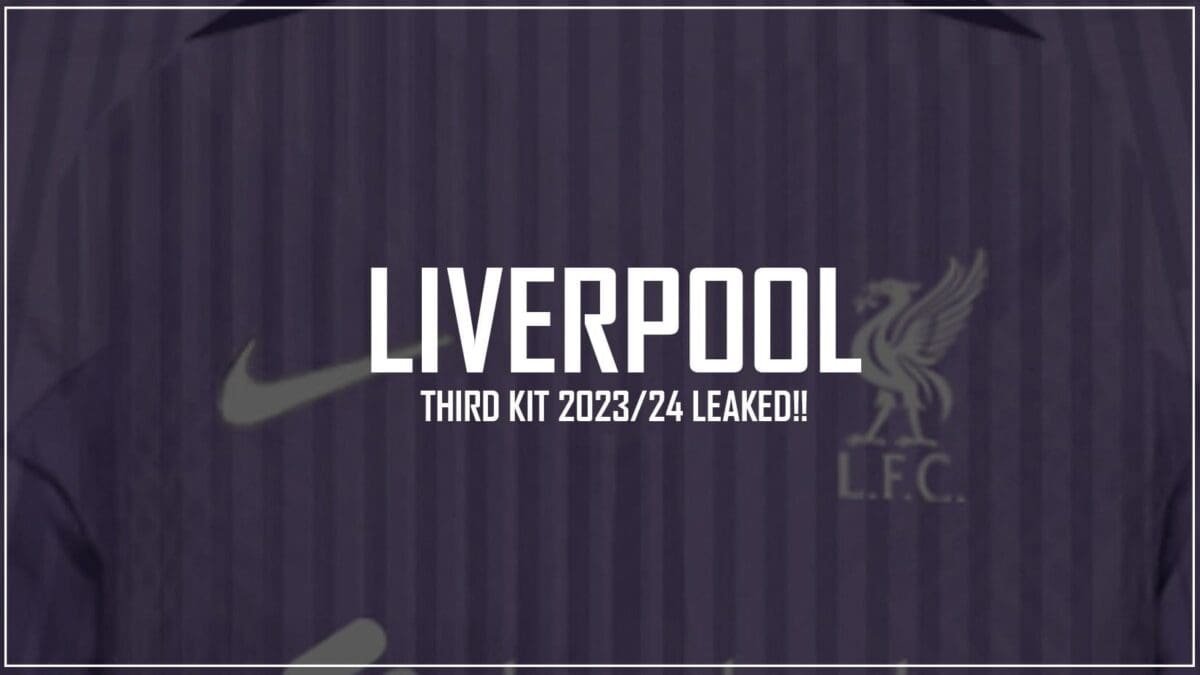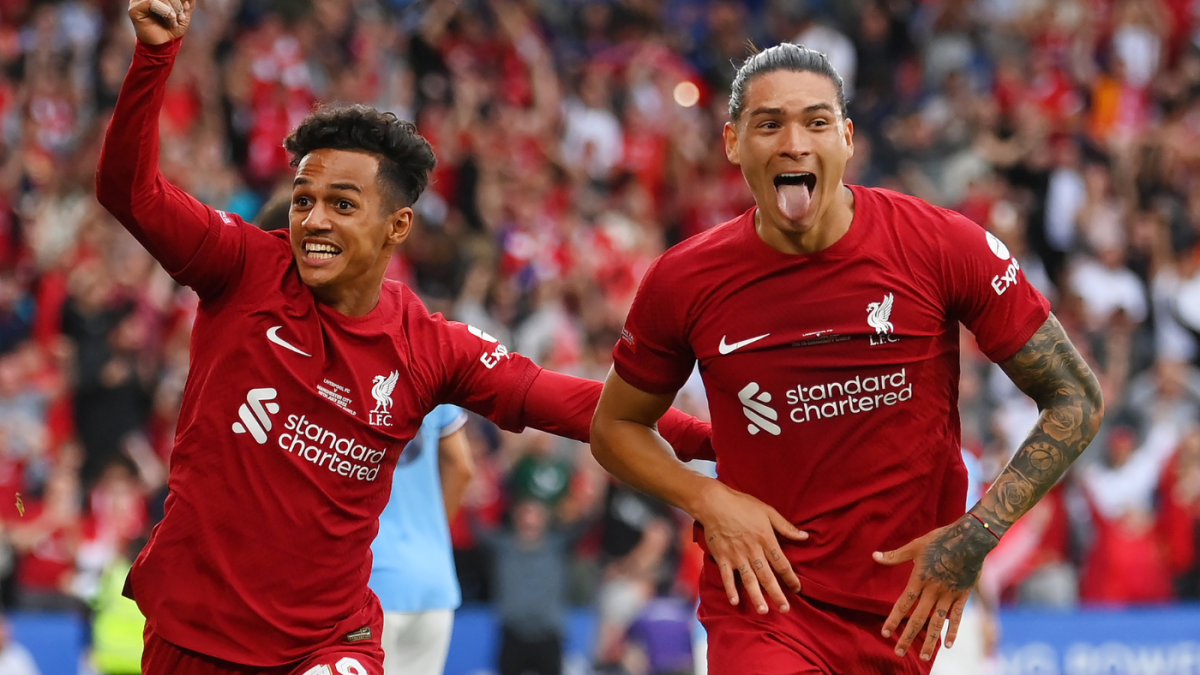Liverpool 21/22: A season of high hopes, dramatic highs, and ultimately, frustrating near-misses. This review delves into the Reds’ campaign, analyzing their performance across all competitions, key player contributions, tactical decisions, and off-field influences. From the electrifying Champions League final to the Premier League title race, we dissect the defining moments that shaped Liverpool’s 2021-2022 season.
We examine Jürgen Klopp’s tactical approach, the impact of injuries on key players like Mohamed Salah and Virgil van Dijk, and the club’s transfer activity. This in-depth analysis will provide a comprehensive understanding of Liverpool’s journey throughout a season that ultimately fell short of their ambitions but showcased moments of brilliance and resilience.
Liverpool’s 2021-22 Season: A Retrospective: Liverpool 21/22
The 2021-22 season for Liverpool was a rollercoaster ride, a campaign defined by exhilarating highs and frustrating lows. Despite falling just short of the Premier League title and ultimately losing in the Champions League final, the Reds showcased their relentless attacking prowess and unwavering spirit throughout the season. This analysis delves into the key aspects of their campaign, examining their performance, key players, significant matches, and off-field influences.
Liverpool’s 2021-22 Season Overview
Liverpool finished the 2021-22 Premier League season in second place, a mere point behind champions Manchester City. Their relentless pursuit of the title saw them consistently challenging City until the very end. While they were ultimately unsuccessful in their league title bid, their cup runs were equally noteworthy. They reached the final of the FA Cup, losing to Chelsea, and the final of the Carabao Cup, also losing to Chelsea.
Their Champions League journey culminated in a heartbreaking defeat against Real Madrid in the final. Statistically, Liverpool boasted a formidable attacking record, but defensive vulnerabilities at times proved costly.
| Competition | Result | Key Players | Notable Matches |
|---|---|---|---|
| Premier League | 2nd Place | Salah, Van Dijk, Alisson | Liverpool vs. Manchester City (multiple encounters) |
| FA Cup | Runners-up | Salah, Mane, Alexander-Arnold | Liverpool vs. Manchester City (Semi-final) |
| Carabao Cup | Runners-up | Keita, Jota, Robertson | Liverpool vs. Arsenal (Semi-final) |
| Champions League | Runners-up | Salah, Van Dijk, Alisson | Liverpool vs. Villarreal (Semi-final), Liverpool vs. Real Madrid (Final) |
Liverpool’s strengths lay in their potent attacking force, spearheaded by Mohamed Salah and Sadio Mané, and their high-pressing, relentless style of play. However, inconsistencies in their defensive solidity and occasional lapses in concentration contributed to dropped points and ultimately hindered their title aspirations.
Jürgen Klopp’s tactical approach remained largely consistent throughout the season, emphasizing a high-intensity pressing game with fluid attacking movements. He adapted formations based on opponent strengths and weaknesses, but the core principles of his gegenpressing system remained central to Liverpool’s strategy.
Key Players’ Performances
Several key players delivered exceptional performances, but their contributions were also affected by factors such as injuries and the overall team dynamic.
- Mohamed Salah: Scored prolifically, but his form dipped slightly towards the end of the season.
- Sadio Mané: Showed consistency and delivered key goals, but his overall impact wasn’t as dominant as previous years.
- Virgil van Dijk: Was a rock at the back for most of the season, but occasional defensive lapses were evident.
- Alisson Becker: Made crucial saves throughout the season, maintaining his reputation as one of the world’s best goalkeepers. However, some goals conceded highlighted areas where the defensive line could be improved.
Compared to previous seasons, the overall team performance felt slightly less consistent, with injuries playing a significant role. While Salah and Mané remained highly productive, their output was not quite as overwhelming as in some previous seasons. Van Dijk’s performance, while generally excellent, showed occasional vulnerabilities, and the team as a whole experienced a slight drop in defensive solidity.
Significant Matches and Moments, Liverpool 21/22
Several matches significantly impacted Liverpool’s season.
Liverpool vs. Manchester City (multiple encounters): These games were crucial in the title race. Closely fought battles, showcasing both teams’ strengths and weaknesses. The results significantly impacted Liverpool’s position in the league table.
Liverpool vs. Villarreal (Champions League Semi-final): A commanding performance showcasing Liverpool’s attacking prowess, demonstrating their ability to overcome significant challenges on the European stage. This victory propelled them to the final.
Liverpool vs. Real Madrid (Champions League Final): A disappointing defeat in the Champions League final. While Liverpool dominated possession for long periods, Real Madrid’s clinical finishing proved decisive.
The atmosphere in the Champions League final was electric, a testament to the global appeal of the competition. However, the final result cast a shadow over the season’s overall success. A pivotal moment was Real Madrid’s early goal, which set the tone for the rest of the match.
Transfer Activity and Squad Dynamics

Liverpool’s transfer activity during the 21/22 season was relatively quiet. The focus was on maintaining the existing squad and addressing specific positional needs. There were no major blockbuster signings.
| Player Name | Position | Transfer Type | Impact on the Team |
|---|---|---|---|
| [Insert Player Name – Example: Luis Diaz] | [Insert Position – Example: Winger] | In | [Insert Impact – Example: Provided additional attacking impetus] |
| [Insert Player Name – Example: Departing Player] | [Insert Position – Example: Midfielder] | Out | [Insert Impact – Example: Minimal impact as already a fringe player] |
Squad dynamics were generally positive, with a strong team spirit evident throughout the season. However, the pressure of competing on multiple fronts undoubtedly took its toll at times.
Discover the crucial elements that make manchester city twitter the top choice.
Managerial Decisions and Tactical Approaches
Jürgen Klopp’s managerial decisions were largely successful, with his tactical flexibility and ability to adapt to different opponents being key factors in Liverpool’s success. However, the inability to consistently maintain defensive solidity was a recurring issue.
Klopp’s tactical approaches varied depending on the opposition and the competition. In the Premier League, a high-pressing, fluid system was employed, while in the Champions League, there was a greater emphasis on controlling possession and exploiting spaces. Substitutions were often made to maintain intensity or address specific tactical situations. Adjustments were made throughout the season to counteract opponent’s strategies and address the team’s own performance fluctuations.
Off-Field Factors and External Influences

Several off-field factors impacted Liverpool’s performance. Injuries to key players disrupted the team’s rhythm and consistency. The demanding schedule of multiple competitions also contributed to fatigue and reduced performance levels. The global pandemic’s lingering effects also played a part, affecting travel arrangements and overall team preparations.
The atmosphere surrounding the team was generally positive, despite the occasional setbacks. The passionate fanbase provided unwavering support, creating a vibrant and enthusiastic atmosphere at Anfield. However, the pressure to win trophies and maintain a high level of performance was always present.
The 2021-2022 season for Liverpool was a complex tapestry woven with threads of both triumph and disappointment. While the team fell short of major silverware, their performances, particularly in the Champions League, highlighted their enduring quality and competitive spirit. Ultimately, the season served as a valuable lesson, revealing areas for improvement and reinforcing the need for consistent excellence across all competitions.
The future remains bright, but the lessons learned from 21/22 will undoubtedly shape Liverpool’s path forward.

